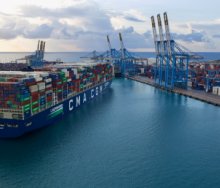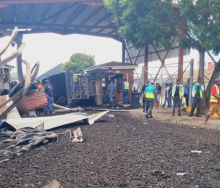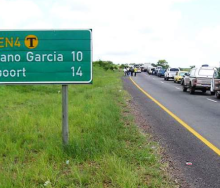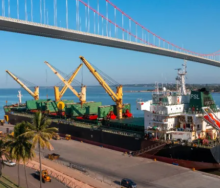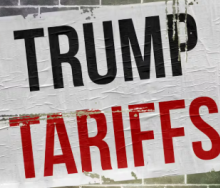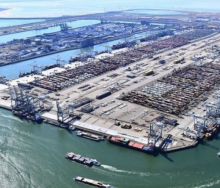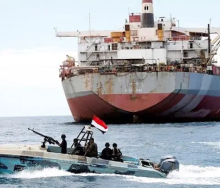The South African Association of Freight Forwarders (Saaff) has described the domestic logistics crisis as a “perfect storm” strangling the private sector and trade, draining the fiscus and causing massive knock-on damage to the economy.
This situation that the government now recognises as an ‘Achilles heel’ to the national economy is receiving corrective focus through public/private sector collaboration, which is showing progress, but this needs to intensify, Saaff CEO Juanita Maree has said.
“The road is long and arduous. We are off to a late but reasonable start.”
According to Saaff, imports and exports represented 56.22% of South Africa’s total GDP in 2023, down by 8,7% from 2022, in a boom year for mineral resources.
“The drop obliterated robust trade growth posted in 2022 – a recovery year after the impacts of the Covid-19 catastrophe.”
Maree said in the context of such losses, and taking into consideration the serious knock-on impact this has on business across all sectors, it is time for expanded targets in the reconstruction of the logistics network.”
“South Africa's freight demand is high, at nearly 500 billion tonne-kilometres.
“We need a multi-modal approach to satisfy our freight demand. And, at the worst of times recently, the inefficiencies in rail cost us R1 billion a day while the inefficiencies at the ports amount to a loss of R200 million a day.”
Maree said since Saaff’s call to government for urgent reforms to confront the logistics crisis in February last year, developments had been “encouraging” and were “poised to pick up pace” in 2024.
A major step in the right direction was the implementation of the National Logistics Crisis Committee (NLCC), which includes strong private-sector partners, she said.
“Through this forum, the private sector is able to participate and have regular access to a specialist logistics consultative platform anchored by regular meetings and accountability, committed to enabling a world-class logistics network for South Africa.
“The NLCC work is already making a difference. The recovery plan deployed by Transnet in Pier 2 (Port of Durban), the country’s biggest container terminal, will remove the backlog effectively end of February 2024 as was anticipated in the original plan.”
Maree said the Cabinet’s approval of the Freight Logistics Roadmap would pave the way for the revival of a properly resourced, inter-modal, world-class logistics network for South Africa and the region.
“In the short-term, the approval gives traction to the emergency, restorative programme underway to address the current crisis, which is further aided by the R47 billion guarantee facility introduced in support of Transnet’s Recovery Plan.”
However, Maree said sustainable action should be taken to protect jobs and attract investment, while excellence should define the logistics network.
“Well-managed, functional Public-Private-Partnerships (PPP) have proven successful for both developed and emerging economies across the world.
“PPP platforms should allay fears among labour groups about job losses and instead predict opportunity for job creation,” Maree said.
“Transnet is a ‘big ship’; it turns slowly, but turning it is – guided by the steadfast commitment and solid operational experience of the team under the leadership of current acting CEO Michelle Phillips, who earlier this week again called on government to accelerate private-sector-participation in the dysfunctional state-owned logistics firm.
“South Africa has what it takes to fix the problems, improve its logistics base and turn this moment into an opportunity to uphold its leadership position in the regional and continental context and beyond in the global supply chain.”
She said South Africa has a chance to press reset and to reinvent its position as a founder member of Brics+ (Brazil, Russia, India, China, South Africa and as of January 1; Egypt, Ethiopia, Iran, Saudi Arabia and the United Arab Emirates), not forgetting its leading trade profile as a member of the African Continental Free Trade Area.

